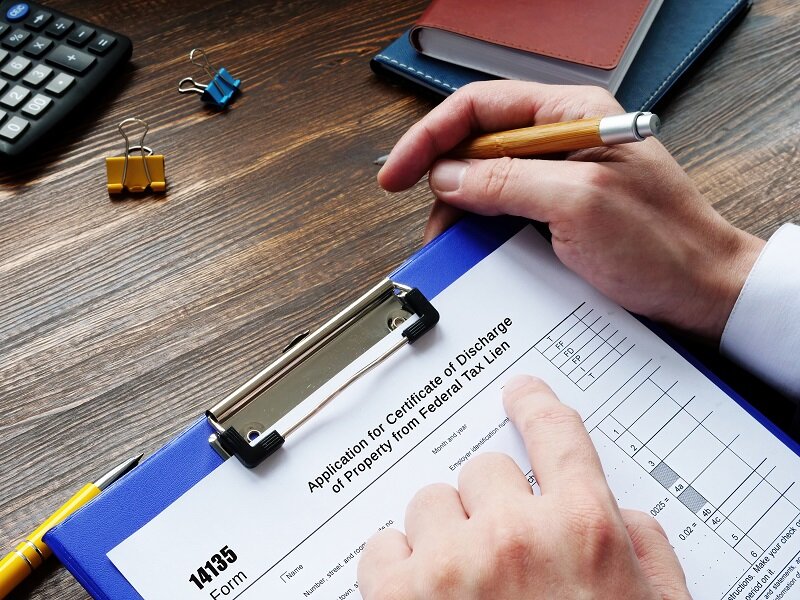
Are you looking to sell your home but have a tax lien attached to the real estate property? Did you start to wonder, “Can I sell my house with a tax lien?”
If you are behind in paying your property taxes or have other back taxes you need to pay off, you may find local, state, or federal governments putting a tax lien on your home. You may want to consider paying off your back taxes before selling your home, as it can complicate the home sale. However, you can sell your property despite delinquent taxes and an IRS tax lien.
Keep reading to learn how to sell a home with multiple types of tax liens on it. Are you ready? Let’s get started!
Can I Sell My House With a Lien Attached
Before we get too far into how homeowners can sell a house with a tax lien attached, you should first understand what a home lien is. Essentially, a home lien is a legal claim put on your property. Banks and mortgage companies, for instance, put a lien on your house to hold it as collateral and ensure borrowers pay their mortgage payments.
A tax lien, however, takes place when a government agency places a lien on the home due to unpaid property taxes, income taxes, or business taxes. The IRS, for instance, informs you in a written letter about your unpaid taxes. If you fail to pay back those taxes, the IRS may place a lien on your house. You will need to pay off the unpaid taxes to release the lien.
So, how can I sell my house with a tax lien? There are numerous steps you can take. First, you can get a lien release. To do so, request a tax lien certificate of discharge from the IRS. That won’t immediately resolve your federal tax lien. However, you will have a chance to sell your property and use the profit from that sale to pay off the tax lien.
Ensure your house has enough equity to cover closing costs and the tax debt. Provide the certificate of discharge at closing. The real estate closing attorney will then transfer some sale proceeds to your creditor to fully remove the lien from the property.
Also, do you believe you have a legal claim against a property tax lien or a state tax lien? If you believe your lien was filed erroneously, you should dispute it immediately.
Sometimes, a lien gets filed in the wrong name, or the relevant government department has not officially resolved a lien after it was paid off. You may benefit from hiring tax experts and even a tax attorney to dispute a tax lien.
Otherwise, you can wait for your lien to expire. However, the government usually only allows that to happen if the balance of unpaid property taxes or other taxes is low. Otherwise, liens may get refiled, and creditors will try to collect.
Tax Lien Process When Selling a House

Can I sell my house with a tax lien without a problem? Unfortunately, the biggest issue is that the average mortgage lender is unlikely to give a mortgage loan to home buyers for a house with an IRS lien on it.
The lien holder, however, can get a tax lien subordination by working with a tax controversy specialist. That document will show that the property owner can sell the house at a profit and pay off both the rest of the mortgage and the unpaid income taxes or property taxes.
With a tax lien subordination, the bank will get paid off first, and then the IRS gets its payment. However, if you have an underwater mortgage and not enough money from the home sale to resolve the lien, you can still apply for a lien discharge.
You will need to prove to the IRS that the sale price is at the fair market value for the property to get a lien discharge. For instance, you will likely need to get an appraisal for the house. Also, a real estate agent may need to write a letter for you outlining the typical cost of the home in the local real estate market.
Before providing a lien discharge, IRS professionals often look at Trulia, Zillow, and other sites to check the fair market value of your home.
Another option is to ask the IRS to consider an “equalization value” when selling your house. Essentially, when considering property taxes, a property may get valued at about 33 percent of its fair market value. However, equalization will take the property tax value and multiply the amount by three to get the fair market value and determine the asking price.
Tax Lien Documents When Selling a House
There are multiple tax lien documents you will need to file and obtain when selling a house with a lien on it. For example, when applying for a lien subordination, you must file IRS Form 14134 titled “Application for Subordination of Federal Tax Lien.”
When applying for a lien discharge, file the IRS Form 14135 called “Application for Certificate of Discharge from Federal Tax Lien.” You may also need to get a Certificate of Discharge from the IRS when you have enough home equity to cover the rest of your mortgage and unpaid taxes after the sale.
The Certificate of Discharge means the federal lien no longer has as much of a hold on the property, and you can sell your house in its as-is condition. The document is only given when IRS professionals feel that the home sale price will cover the costs of the outstanding tax debt, interest, mortgage, and closing fees.
Currently, the IRS is making some changes to help taxpayers struggling to pay off outstanding debt. For instance, the IRS is increasing the monetary amount when filing tax liens on the property. The new dollar amount is based on current inflation rates.
Taxpayers with a lien on their property can also now enter into a Direct Debit Installment Agreement (DDIA) with the IRS. Lien withdrawal requests have also become easier, in which the taxpayer can ask for full lien withdrawal after paying off their tax debt.
If you haven’t paid property taxes and/or the sewer bill, you need to understand that a tax lien applied to your property means you may lose your house. The local or state government may pursue a tax lien foreclosure on your property.
How to Sell a House With a Tax Lien Attached
Numerous issues may pop up when trying to sell a house with an attached tax lien. For instance, selling a house with negative equity means you won’t pay off your entire tax debt after completing a home sale.
The relevant government department may not allow you to sell the house unless you can cover the rest of your tax debt after the home sale. As such, you should start to lower your tax debt and pay it off as much as you can before you try to sell your house.
If you cannot lower your debt enough to ensure your home sale pays off the rest, you may have few options left. In that case, you might have to file for bankruptcy. Nonetheless, you should check out all your options and see if you can agree to a payment plan before you file for bankruptcy.
However, if your situation is different and you can cover the remaining debt by selling your house, make sure to get a Certificate of Discharge from the IRS and sell your house as is.
While renovations and minor upgrades can boost the home sale price, remodeling is expensive and elongates the sale process. Spending too much time on renovations can lead you to gain another month of interest and fees on your debt. Therefore, you should sell your house as is.
You can also save on costs by selling directly to a cash home-buying company and foregoing a real estate agent. Wondering how to sell a house without a realtor? First, you won’t need to cover the 5 or 6 percent commission of a realtor. To simplify the process, you can try selling directly to a cash home buyer or a real estate investor.
That way, you can sell your house as-is and get a fair cash offer in a short period. Upon closing, have your attorney present the certificate of discharge and transfer the funds from the sale to your creditor to fully resolve the tax lien.
Conclusion
By working with your tax collectors and getting relevant documents in place, you can sell your house with a tax lien attached. You will likely need to prove that your home sale price will cover the unpaid taxes along with your mortgage, closing costs, and other fees.
In addition, if you want to sell a house fast in Belmont, contact real estate investors and cash home buyers in North Carolina. Luckily, we buy houses Charlotte locals adore, so call us today!
